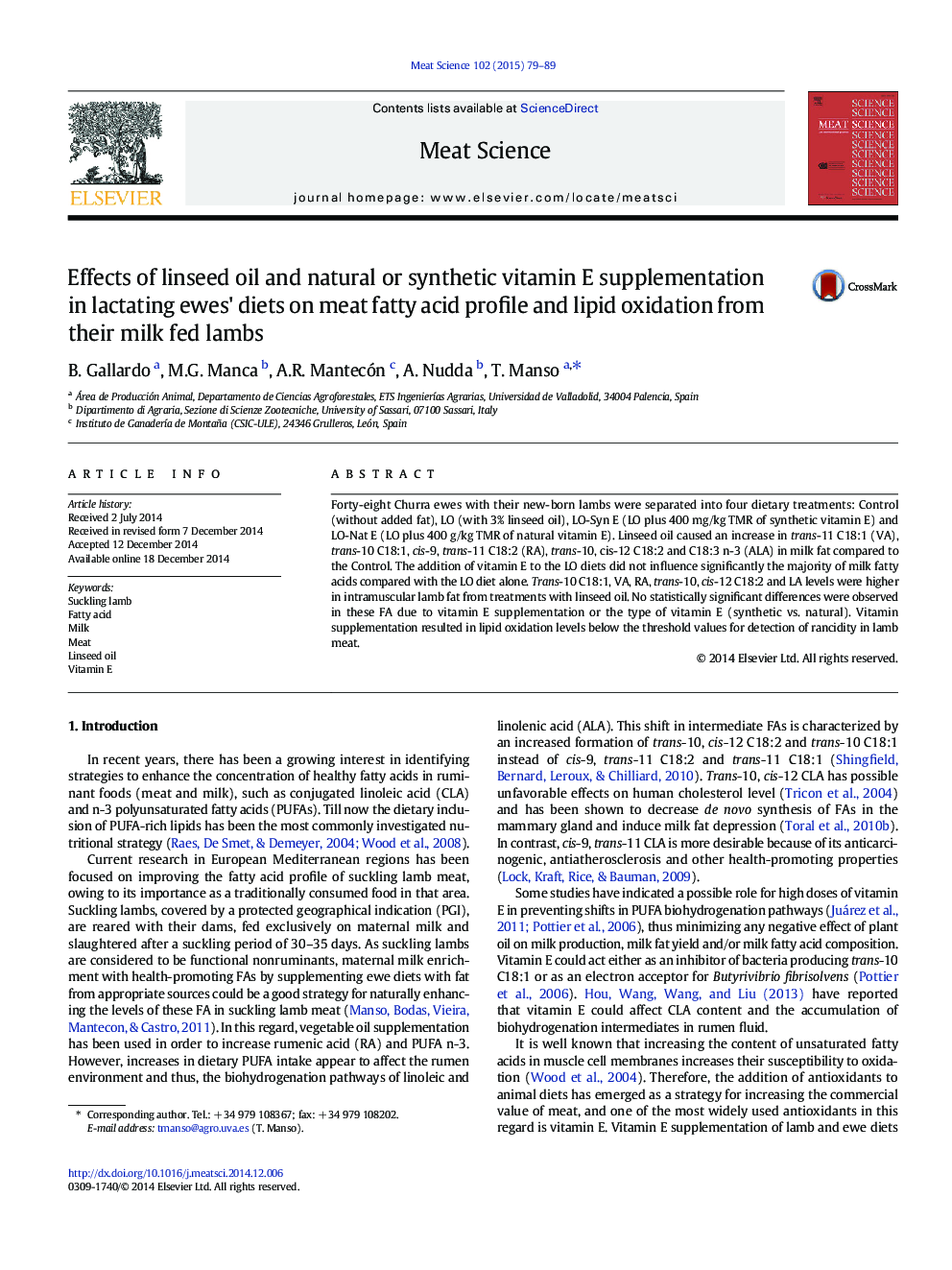| Article ID | Journal | Published Year | Pages | File Type |
|---|---|---|---|---|
| 2449705 | Meat Science | 2015 | 11 Pages |
•Linseed oil and natural or synthetic vitamin E fed to lactating ewes.•Linseed oil increased the content of healthy fatty acids in meat of suckling lambs.•Natural or synthetic vitamin E had a limited effect on milk and meat fatty acid profile.•Vitamin E affected the lipid and color stability of suckling lambs meat.
Forty-eight Churra ewes with their new-born lambs were separated into four dietary treatments: Control (without added fat), LO (with 3% linseed oil), LO-Syn E (LO plus 400 mg/kg TMR of synthetic vitamin E) and LO-Nat E (LO plus 400 g/kg TMR of natural vitamin E). Linseed oil caused an increase in trans-11 C18:1 (VA), trans-10 C18:1, cis-9, trans-11 C18:2 (RA), trans-10, cis-12 C18:2 and C18:3 n-3 (ALA) in milk fat compared to the Control. The addition of vitamin E to the LO diets did not influence significantly the majority of milk fatty acids compared with the LO diet alone. Trans-10 C18:1, VA, RA, trans-10, cis-12 C18:2 and LA levels were higher in intramuscular lamb fat from treatments with linseed oil. No statistically significant differences were observed in these FA due to vitamin E supplementation or the type of vitamin E (synthetic vs. natural). Vitamin supplementation resulted in lipid oxidation levels below the threshold values for detection of rancidity in lamb meat.
